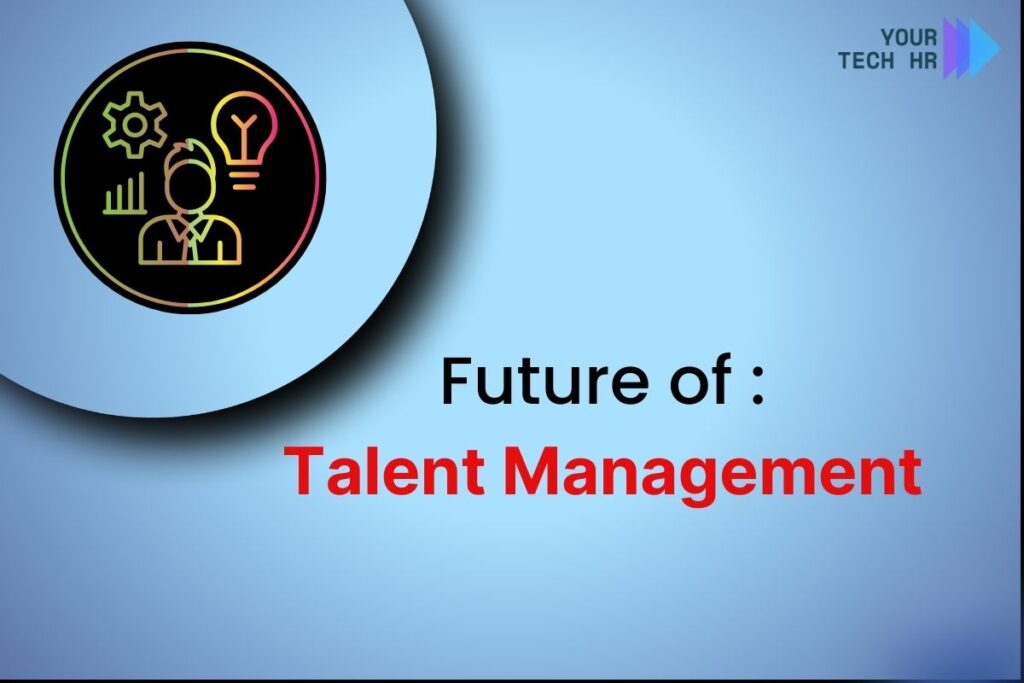Talent management is all about making sure that a company has the best people in the right positions to help the business grow. As the world of work continues to evolve, so does the way companies manage their talent. In this blog, we’ll explore what talent management is, why it’s important, and the key trends shaping its future. We’ll also look at how businesses can build a high-performing workforce by focusing on key areas like employee engagement, performance management, succession planning, employee development, and retention.
What is Talent Management?
Talent management is a process that companies use to attract, develop, and retain skilled employees. It involves everything from hiring the right people to helping them grow within the company and making sure they stay. A good talent management strategy helps businesses achieve their goals by ensuring they have a strong, capable workforce.
Why is Talent Management Important?
In today’s competitive business world, having the right talent can make or break a company. Talent management is important because it helps companies:
- Attract Top Talent: By having a strong talent management strategy, companies can attract skilled workers who can help the business succeed.
- Develop Employees: Talent management ensures that employees have the opportunities they need to grow and develop their skills, which is crucial for long-term success.
- Retain Top Performers: Keeping top talent within the company is key to maintaining a competitive edge. Talent management helps ensure that employees are satisfied and less likely to leave.
The Future of Talent Management: Building a High-Performing Workforce
As the world of work evolves, so too must the strategies and tools companies use to manage their talent. In this blog, we explore the future of talent management, focusing on how businesses can build a high-performing workforce by leveraging innovative talent management models, systems, and strategies. We will also discuss the critical role of talent and development managers in navigating this future.
Future of Talent Management
Talent management is the strategic process of attracting, developing, and retaining employees who are crucial to a company’s success. As we look to the future, the landscape of talent management is set to change dramatically. Companies will need to adopt forward-thinking approaches to ensure they have the right talent in place to drive growth and innovation.
In the future, talent management will be more integrated, data-driven, and employee-focused. The traditional methods of managing talent will evolve to incorporate advanced technologies, new work models, and a greater emphasis on employee experience.
Adapting to Change
A key aspect of future talent management is the development of flexible and adaptive talent management models. These models will be essential in helping companies respond to rapid changes in the business environment, such as technological advancements, shifting employee expectations, and global competition.
- Agile Talent Management: The future will require talent management models that are agile and adaptable. Companies will need to be quick in identifying and responding to talent needs, ensuring that their workforce remains aligned with business objectives. Agile talent management will focus on continuous learning, real-time feedback, and dynamic workforce planning.
- Employee-Centric Models: Future talent management models will place a greater emphasis on the employee experience. This means creating environments that prioritize well-being, personal growth, and work-life balance. By focusing on the needs and aspirations of employees, companies can build a more engaged and productive workforce.
Integrating Technology
As companies embrace the future of work, technology will play an increasingly important role in talent management. Advanced talent management systems will become critical tools for companies looking to streamline processes and enhance decision-making.
- Integrated Systems: Future talent management systems will integrate various aspects of talent management, including recruitment, performance management, learning and development, and succession planning. These integrated systems will provide a holistic view of the workforce, enabling companies to make data-driven decisions that align with their strategic goals.
- AI and Predictive Analytics: Artificial intelligence (AI) and predictive analytics will be key features of future talent management systems. These technologies will allow companies to anticipate talent needs, identify potential skill gaps, and proactively address retention risks. By leveraging data, companies can stay ahead of the curve and ensure they have the right talent in place for future challenges.
Shaping the Future Workforce
Developing a robust talent management strategy will be essential for companies aiming to build a high-performing workforce. These strategies will need to be forward-looking, focusing on key areas such as employee engagement, development, and succession planning.
- Employee Engagement: The future of talent management will require innovative strategies to keep employees engaged, especially in an increasingly hybrid and remote work environment. Companies will need to create personalized employee experiences that cater to individual preferences and career goals. This might include offering flexible work arrangements, virtual engagement activities, and opportunities for career development.
- Continuous Learning and Development: With the rapid pace of change in the business world, continuous learning and development will be critical for maintaining a competitive edge. Future talent management strategies will need to focus on reskilling and upskilling employees to prepare them for the jobs of the future. This will involve using digital learning platforms and virtual training programs that make learning more accessible and adaptable to individual needs.
- Succession Planning: As businesses face an uncertain future, succession planning will become more dynamic. Companies will need to prepare for multiple scenarios and ensure they have a diverse pipeline of talent ready to step into leadership roles. Future succession planning strategies will focus on developing inclusive leadership programs that nurture talent from various backgrounds and perspectives.
The Role of the Talent and Development Manager
In the future, the role of the talent and development manager will be more critical than ever. These professionals will be at the forefront of implementing and managing the advanced talent management models, systems, and strategies discussed above.
- Strategic Partner: Talent and development managers will need to act as strategic partners to business leaders, helping to align talent management initiatives with overall business objectives. They will play a key role in shaping the company’s culture, fostering employee engagement, and driving innovation through continuous learning and development.
- Change Agents: As companies navigate the future of work, talent and development managers will act as change agents, guiding their organizations through the transformation of talent management practices. They will be responsible for ensuring that the workforce remains adaptable and resilient in the face of change.
- Technology Enablers: With the increasing importance of technology in talent management, talent and development managers will need to become proficient in using advanced systems and tools. They will be responsible for leveraging AI, predictive analytics, and integrated talent management systems to optimize workforce planning, performance management, and succession planning.
Building a Future-Ready Workforce
The future of talent management will require companies to adopt a holistic approach that integrates advanced models, systems, and strategies. By focusing on employee engagement, continuous learning, and dynamic succession planning, businesses can build a workforce that is not only high-performing but also future-ready.
To succeed in the future, companies will need to create a purpose-driven culture that aligns with the values and aspirations of their employees. This will involve offering flexible benefits and compensation packages that cater to the diverse needs of the workforce, as well as fostering a culture of inclusivity and continuous development.
Conclusion
The future of talent management is full of opportunities for companies to build high-performing, resilient, and engaged workforces. By embracing innovative talent management models, systems, and strategies, businesses can stay ahead of the curve and ensure they have the talent needed to drive success in an ever-changing business environment.
Talent and development managers will play a crucial role in this future, acting as strategic partners, change agents, and technology enablers. By focusing on the future of talent management, companies can unlock new potential, drive growth, and build a workforce that is ready to meet the challenges of tomorrow.


